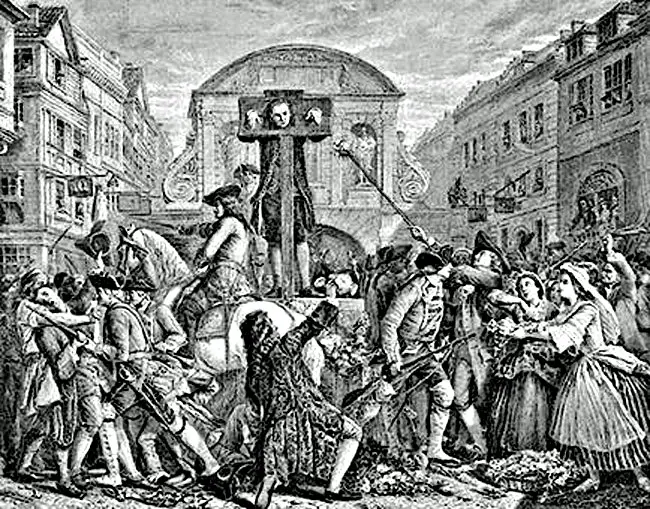
By Mark Flynn
Imagine you and some buddies are enjoying a friendly low-stakes poker game when your enthusiastic host turns the music up way too loud. One of his neighbors gets annoyed and calls the police, who discover the poker game – and suddenly you’re facing a possible gambling arrest.
Or imagine you’ve been standing in line patiently for hours to buy the latest piece of technology when someone tries to cut into the line. You tell him to get to the back of the line, but the line-cutter threatens to assault you and everyone around you. The situation escalates, and the next thing you know, everyone is facing a disorderly conduct charge.
Scenarios like those could happen to anyone. Even with no criminal intent, we can easily be caught breaking a law. Until now, law enforcement officers in Florida have had only two choices in these circumstances: let you go or arrest you.
Soon, however, officers and deputies in Leon County will have another, much smarter alternative. Next month it will become the first place in Florida to provide officers with the discretion to issue Adult Civil Citations to first-time, non-violent individuals who commit certain low-level offenses. These individuals will be spared from a criminal arrest record that would follow them for the rest of their lives.
Florida has successfully utilized civil citations for juveniles for 17 years now, and the Florida Smart Justice Alliance believes this new approach will save tens – perhaps hundreds – of millions of dollars per year if it is implemented for adults statewide. Not only will it save money, but the Adult Civil Citation process also will enhance public safety by freeing up law enforcement personnel, prosecutors and courts to deal with more serious criminals.
The agreement to implement Adult Civil Citations within Leon County came about thanks to visionary leaders across the criminal justice spectrum – not just law enforcement and prosecutors, but also the Public Defender’s Office, the judiciary and local treatment providers. Despite their usual differences, they all agree that civil citations represent a smarter way to use tax dollars to keep the public safe.
Here’s how it works: Local agreements give officers the flexibility to determine when certain alcohol, drug and other non-violent offenders would be better served by receiving an adult civil citation rather than being arrested for minor offenses like public intoxication, petty theft, disorderly conduct, trespassing and the like. Offenders who qualify will still be required to perform community service and undergo treatment for any conditions that contributed to their offenses, and they – rather than the taxpayers – will pay all costs. If they fail to meet the conditions of the program, they face arrest.
However, the process can spare them a criminal record, eliminating a major barrier to future employment, education, military service and other opportunities to build a law-abiding life. The taxpayers also benefit tremendously, avoiding the substantial expense of prosecuting and incarcerating these first-time, low-level offenders.
Leon County Sheriff Larry Campbell, who has taken a hard-line approach to crime and criminals over his 16 years in office, supports Adult Civil Citations because, as he put it, “A minor stupid act shouldn’t automatically ruin a person’s life.” At the same time Public Defender Nancy Daniels, who often represents those the sheriff arrests, is equally enthusiastic because a civil citation “has the ability to change a life for the better by keeping the person out of our criminal justice system.”
Adult Civil Citation is an idea whose time has come. It helps individuals; it helps law enforcement; and – most importantly – it helps taxpayers. It represents the essence of a smart justice approach to crime in Florida, and it has the potential to rewrite how Florida’s criminal justice system operates. With the cooperation and support of leaders in communities across our state, it can become an important tool for cost-effective public safety.
![]()
Mark Flynn is the president and Chief Executive Officer of the Florida Smart Justice Alliance, a statewide coalition of organizations committed to changes that make communities safer, save taxpayers money and hold offenders accountable while helping them learn to live law-abiding lives.





























Whodat says
This is nothing new but certainly is in Florida. The good old Desk Appearance Ticket (DAT) has been an affective cost measure but there are drawbacks. Usually, the person that is a candidate must meet criteria or as the saying goes, have “Roots in the Community”. For example: Do they live in the community (County); Do they work; Do they attend school/college; Do they have prior arrests; Do they live with parents or other family members, etc, etc. Add the sum total and if they meet the criteria they are issued a DAT to appear back in court at a future time. Any further incidents while awaiting a future court date may or may void the DAT and are remanded to jail.
It is a cost saving measure that has a lot of potential especially for someone who has been introduced to the criminal justice system for the first time for a minor offense and avoids the embarrassment, shame and scar of not only a criminal record as well as the trauma of incarceration.
It’s a win win situation for the tax payer and local police agencies because it saves money, gets the police officer back on the street sooner and affords some dignity to members of society that commit minor offenses.
Initialjoe says
Good Idea!!!
Anonymous says
Civil Citation makes sense. And saves tax dollars.